English Language
Department Mission
To foster a passionate, artful and collaborative experience in learning and appreciating the English language.
Key Programmes
STELLAR (MOE, Singapore)
STELLAR stands for “Strategies for English Language Learning and Reading”.
It is an English instructional programme developed for primary schools that enables us to teach our children the critical life skills of listening, speaking, reading and writing in English through effective and engaging strategies that are developmentally appropriate.
The programme employs the following strategies:
Shared Book Approach (SBA)
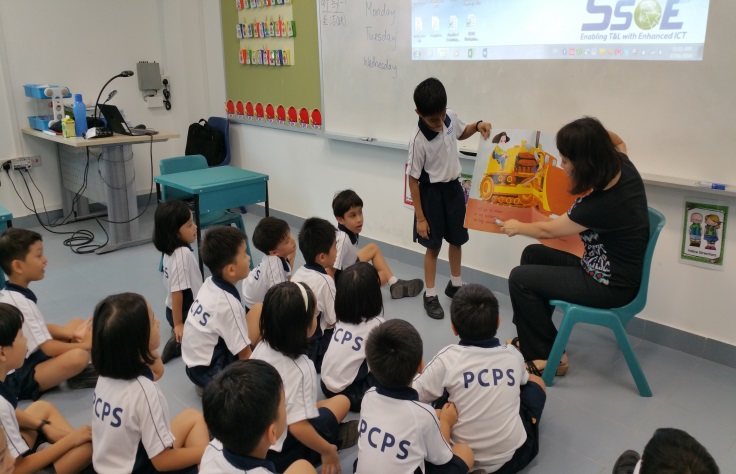
The teacher introduces and shares a Big Book with the pupils. Students are then taught language items, structures and skills explicitly, including concepts of print, phonics and grammar.
Modified Language Experience Approach (MLEA)
Students are provided experiences based on text they have read in the
classroom. These experiences come in the form of art and craft, drama or
other novel activities.
Bubble Trouble!
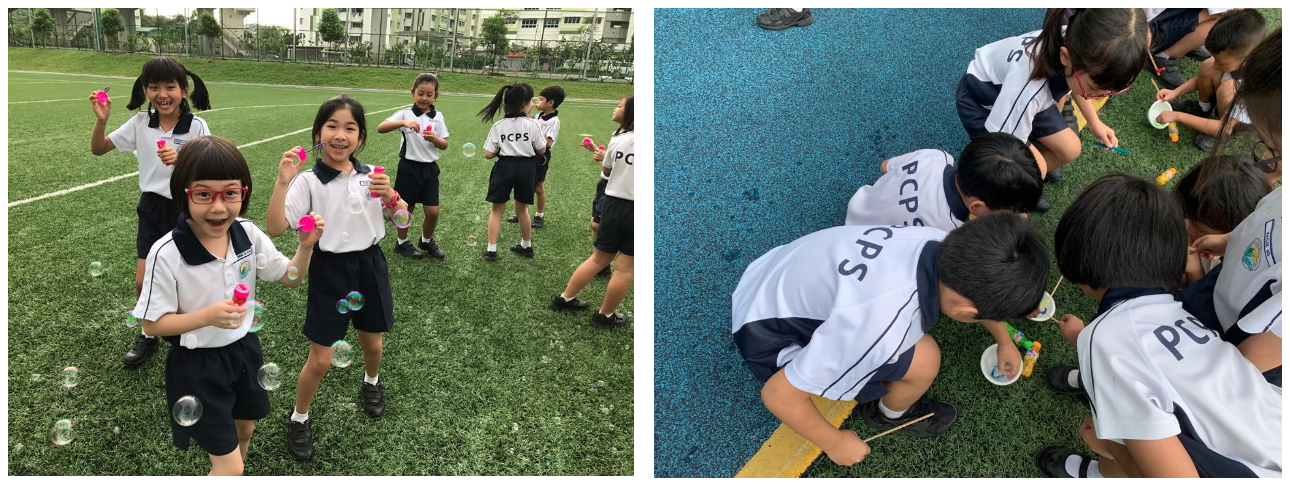
Drama @ PCPS
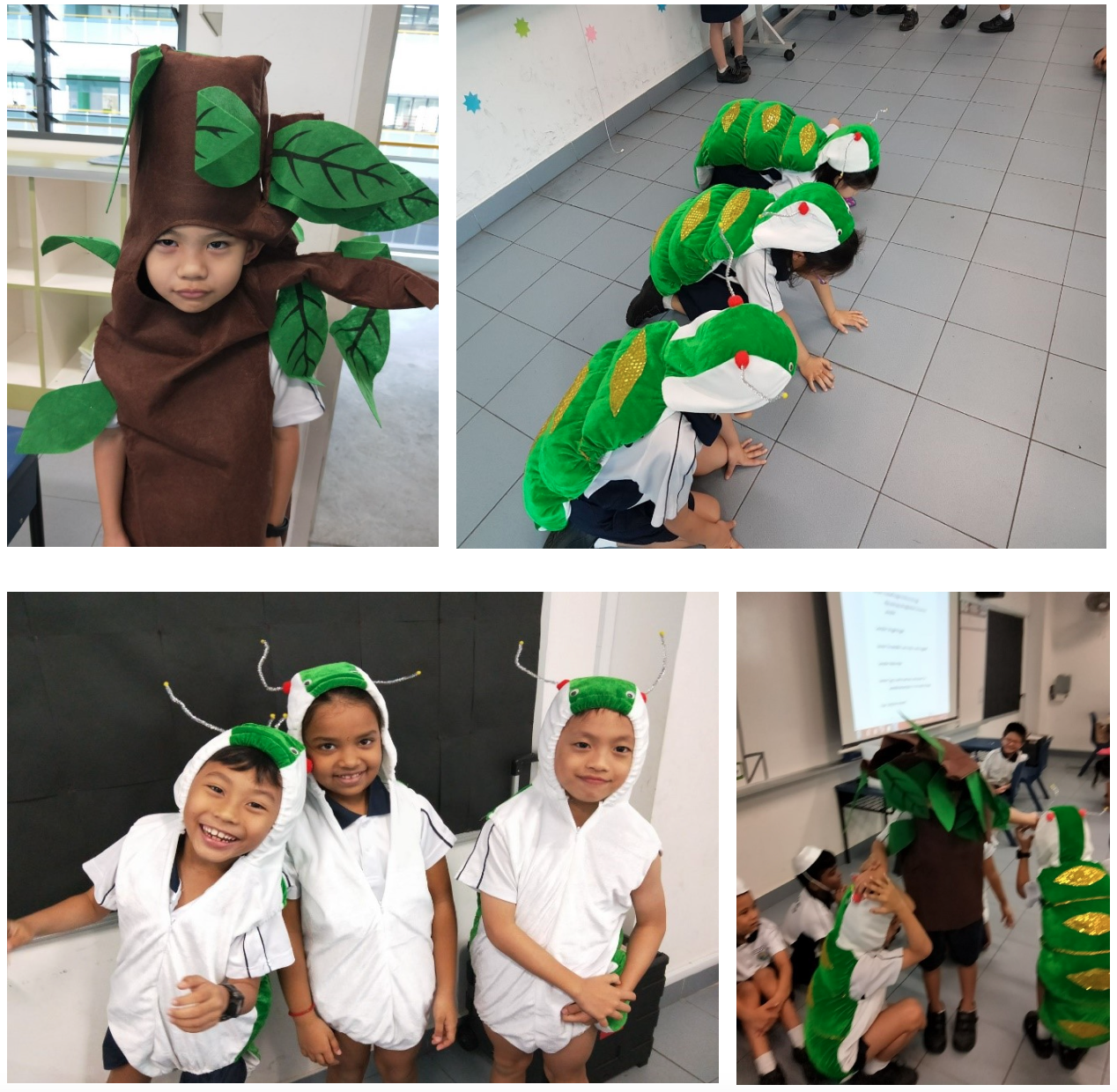
Engagement in the above activity provides the context and content for the children to think and talk about, using the target language structures and vocabulary they have been exposed to in SBA.
With the help of the teacher who transcribes the children's input, the pupils come up with a piece of class writing. This becomes the basis for group writing, when the children work in small groups, before they go on to individual writing.
Learning Centres (LC)
The language skills learnt in both SBA and MLEA are reinforced in
the Learning Centres (LC). In LC, activities are planned and differentiated
for the students. It is here that students have the opportunity to
re-learn, revisit or extend their learning at their own pace and in differentiated
ability groups.
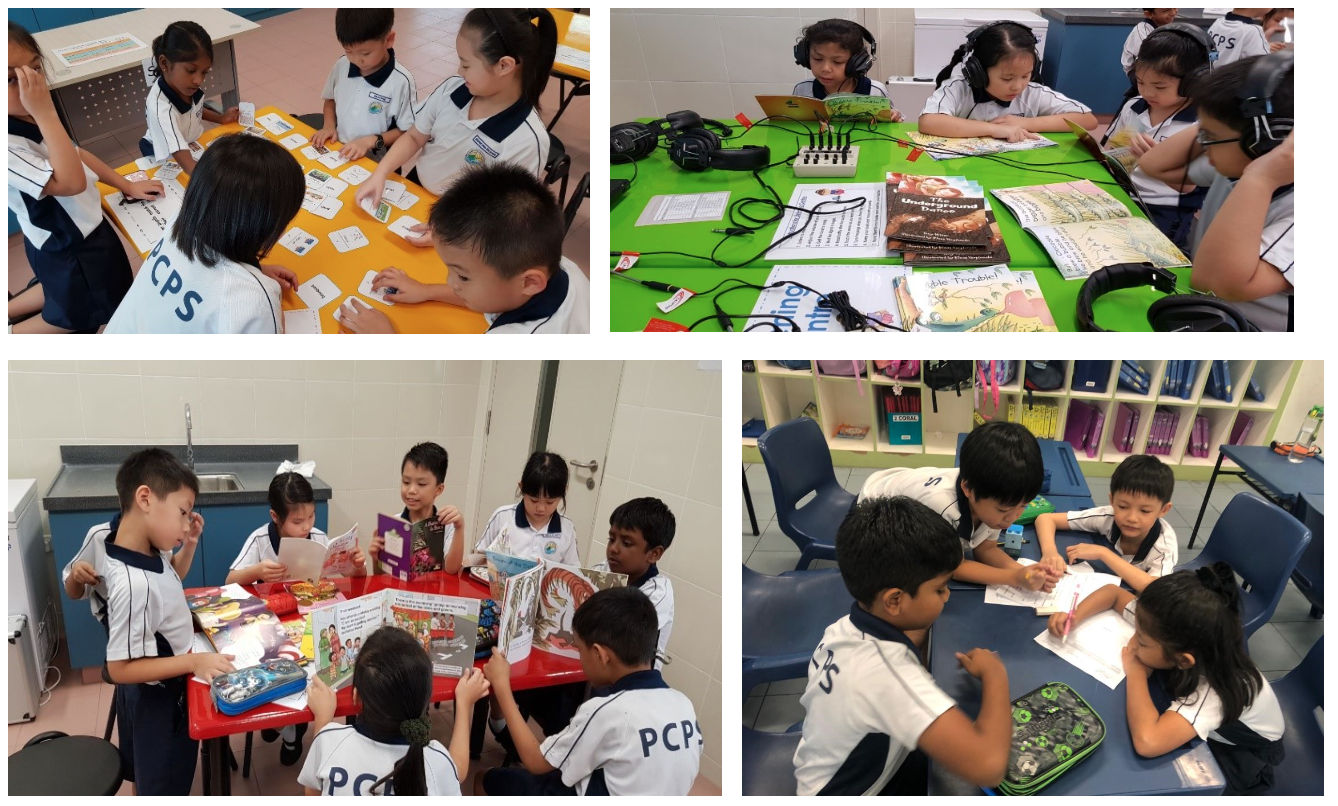
STELLAR at Upper Primary
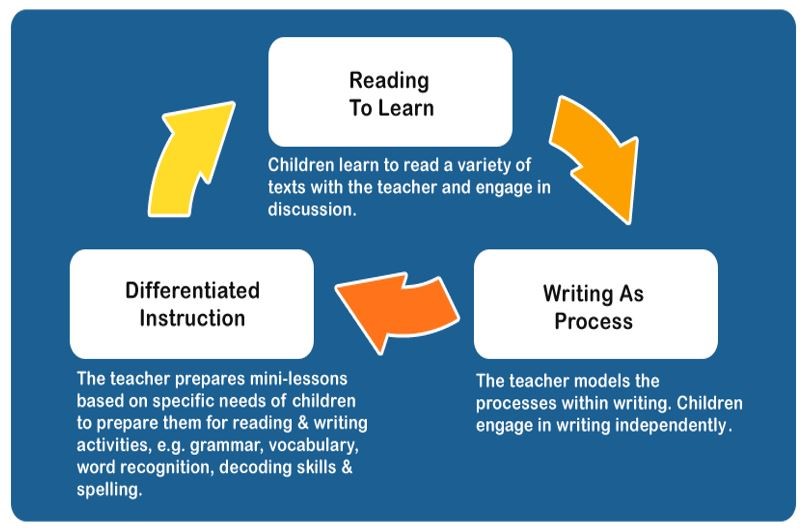
2. School-Based Curriculum
The department has put together a series of programmes to complement STELLAR, so as to enhance the teaching and learning of the English language.
|
1 . |
Literature-Based Instruction |
Literature-based instruction is the type of instruction in which authors'
original narrative and expository works are used as the core for experiences
to support children in developing literacy.
|
|
2 . |
Learning Journeys |
Primary 1 students heading to the Singapore Zoo to learn more about animals.
This journey is in line with the mini-research they will be conducting
on animals.
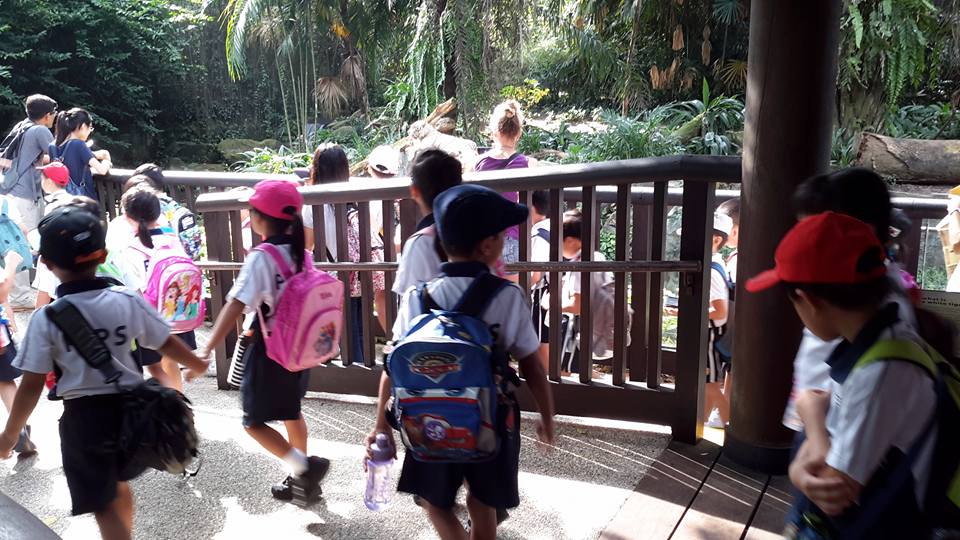
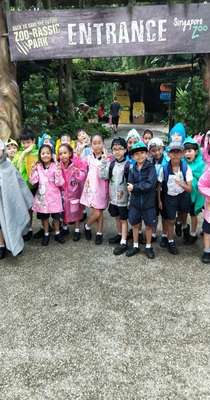
|
|
3 . |
Choral Reading
|
In our constant strive to improve the spoken ability of our students, children are exposed to a series of speaking activities. |
|
4. |
Newspaper-based EL lessons (P5) |
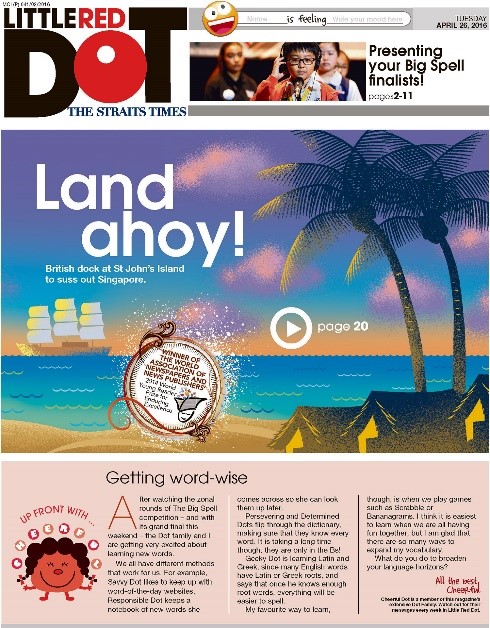
|
3. English Fiesta
The annual English Fiesta is held with the aim of creating opportunities for our students to learn and celebrate the English language in various forms.
Students are immersed in an array of indoor as well as outdoor activities. Some of these activities include games carnival, authors’ display, poetry appreciation, oral comprehension task and literature appreciation. The carefully crafted activities create a meaningful context for language use while increasing learner motivation.
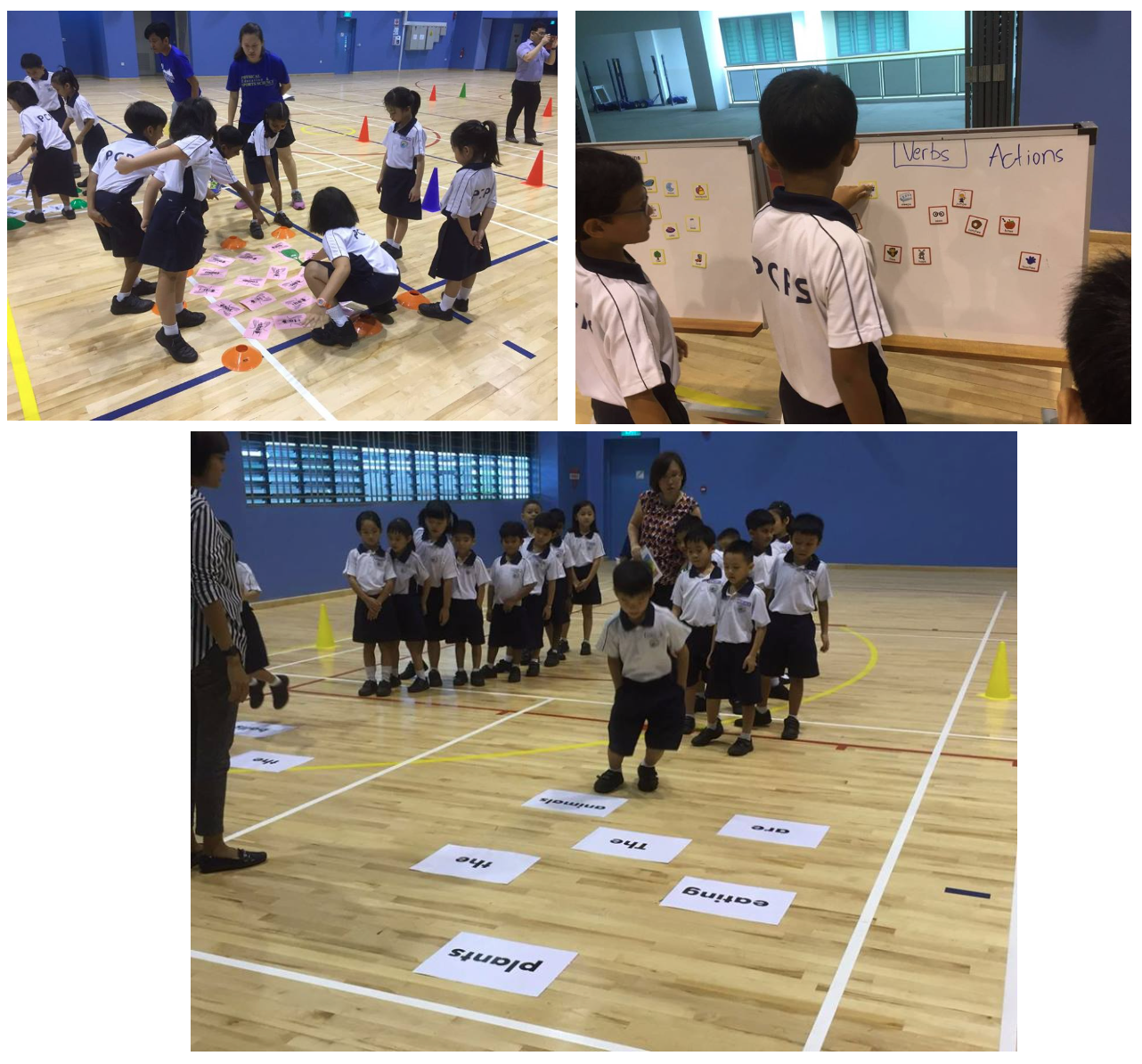
4. Support Programmes
-
Learning Support Programme (LSP)
LSP is a literacy support programme initiated by MOE that caters to the needs of our struggling readers. Students in this programme are given additional support in reading to keep up with the standard EL curriculum. The lessons are conducted by a trained Learning Support Coordinator (LSC).
-
School Based Dyslexic Remediation (SDR)
SDR is a two-year intervention programme for Primary 3 and 4 students. Students enrolled in this programme are identified for support through a systematic screening process for dyslexia conducted at the end of Primary 2. The programme is conducted in small groups by trained school personnel using a remediation curriculum designed by MOE Reading Specialists.
-
Reading Remediation Programme (RRP)
The RRP provides support to our P3 and P4 students who continue facing difficulties in reading the English language. The programme exposes students to a range of coping strategies for reading comprehension which enable them to better manage their learning in the regular classroom.
5. Applied Learning Programme (ALP) – English language
Holistic English Literacy Programme (HELP)
In a bid to encourage students to apply their learning to real world issues,
the English department has curated the HELP programme which provides students
with opportunities to put their acquired listening, reading and writing
skills from the English language classroom to service learning activities
and therefore endeavour to be of HELP to the school and community at large.
For more information about this programme, click this link: https://punggolcovepri.moe.edu.sg/pcps-experience/Programme/alp

